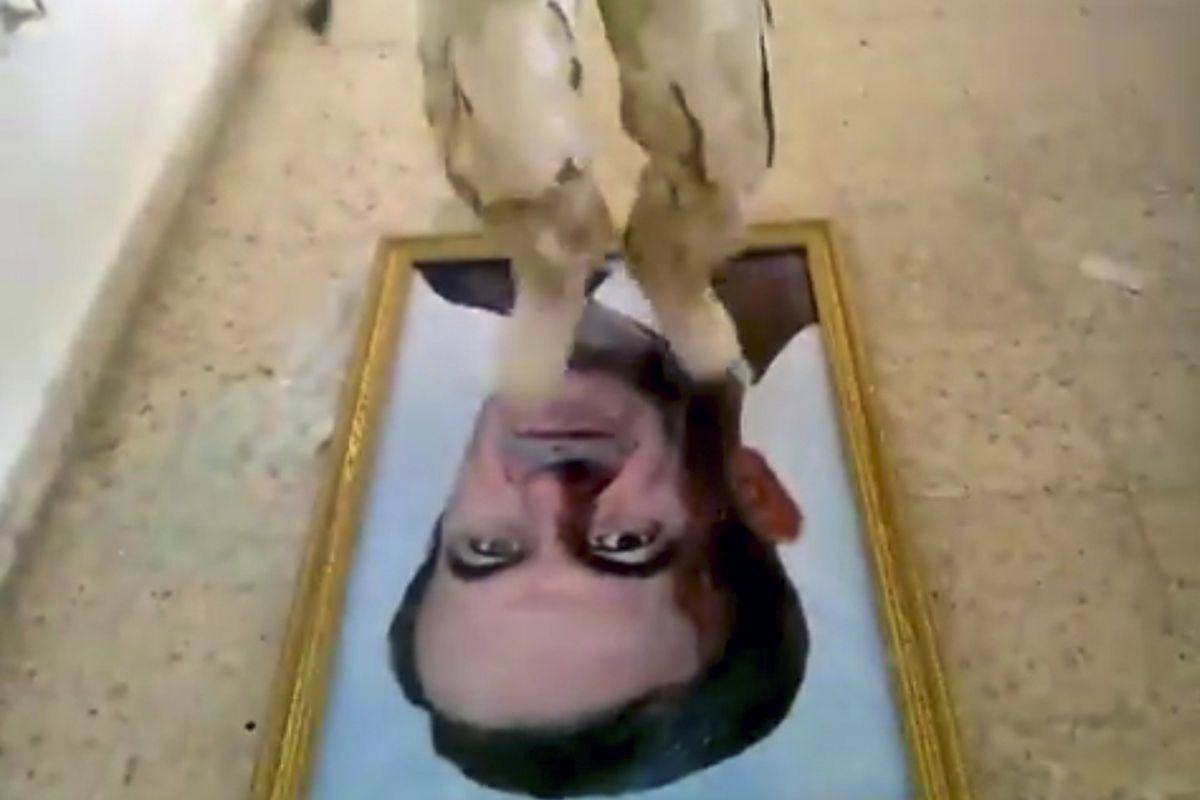Syrian fighting could spread
As diplomacy fails, U.S. turns focus to stopping bloodbath

WASHINGTON – After pressing for 16 months for a change of government in Syria, the Obama administration is trying to prevent increased bloodshed and the apparent unraveling of President Bashar Assad’s hold on power from paving the way to regional calamity.
A day after the brazen assassination of three top military aides suggested that armed insurgents had begun to gain the upper hand, Assad appeared Thursday on state-run TV to show that he was alive as heavy fighting continued for a fifth consecutive day in parts of the capital, Damascus.
With a diplomatic solution now considered all but impossible, U.S. officials and their allies reached out to opposition leaders to seek a peaceful transition to a new government in the event Assad is toppled.
U.S. officials also conferred with Israeli leaders and urged them not to use military force to try to secure Syria’s stockpiles of chemical weapons, arguing that such an intervention would probably rally support for Assad at home and in the Arab world.
Some U.S. officials fear that Assad’s security forces, which have repeatedly fired heavy weapons in civilian areas, could use blister agents and poison gas against opposition forces if they believe the government is about to collapse.
Division among world powers was painfully evident Thursday as Russia and China again vetoed a Western-supported United Nations Security Council resolution that would have imposed economic sanctions if Assad’s military refused to observe a cease-fire and remove heavy weapons from populated areas.
Jay Carney, the White House press secretary, said Russia and China were “on the wrong side of history. … It is a mistake to prop up that regime as it comes to an end.”
Analysts said the 11-2 vote, with two abstentions, made it clear that Moscow wouldn’t abandon its longtime ally in Syria, home to Russia’s only overseas navy base. As a result, the months-long effort by Washington and its allies to forge a diplomatic solution to the crisis apparently has reached a dead end.
It may also spell an end to diplomatic efforts led by envoy Kofi Annan, and the 300 unarmed monitors the U.N. sent to Syria in the spring in an unsuccessful attempt to protect civilians and quell the mounting violence in the rebellion.
U.S. officials worry now that a victory over Assad, a member of the minority Alawite sect, by Sunni Muslim insurgents could spark a sectarian bloodbath.
Another risk comes from Islamist militants, including some from al-Qaida, who have begun to assert themselves amid the country’s chaos.
Some U.S. officials and diplomats said Assad could still hold on for some time, and that the outcome was far from clear.
They said that if insurgents continued to gain ground, Assad and his aides may abandon Damascus for the coastal province of Latakia, a stronghold for Alawites, whose sect is an offshoot of Shiite Islam. On Thursday, some media and opposition reports placed Assad in Latakia.
Andrew Tabler, a Syria expert at the Washington Institute for Near East Policy, predicted the government would make a “strategic retreat” to the coast.
“I’m a little skeptical about things collapsing quickly,” he said.
Analysts say the course of the fighting is likely to be the most decisive factor in determining the fate of Syria. Many observers see the momentum now favoring the rebels, despite the government’s advantages in armor and weapons.
While arguing that the ongoing battles in the streets of Damascus would hasten Assad’s fall, opposition activists sought to allay concern that Syria could descend into an Iraq-style abyss of chaos and sectarian killings should rebels capture the capital.
“We’ve been preparing for the end of the Assad regime for a long time,” Abdulbaset Sieda, head of the opposition Syrian National Council, told the Reuters news agency.
“Our aim is to reach that phase with minimal losses. We have plans on the economic, administrative and social levels, and we are certain we can do it.”
The most immediate concern may be the chemical weapons. A U.S. military official said Syria had shifted some of its chemical agents from storage bunkers in recent weeks, but he said it was unclear whether they were moved to prevent them from falling to the rebels, in preparation for use or for some other reason.
Israeli officials have hinted for months that they would launch airstrikes to destroy the stockpiles, if necessary, to keep them out of the hands of Islamist extremists.
But some experts have warned that airstrikes might release the poisons into the atmosphere.
Israeli authorities on Thursday canceled weekend leaves for soldiers. The defense force began shoring up defense and emergency response teams deployed along the Golan Heights border with Syria, officials said.
Defense Minister Ehud Barak said Israel was concerned about the safety and control of Syria’s chemical weapons and long-range missiles.
“We obviously are not the only player in the region that is anxious about the fact that an anarchic situation will bring about the transfer of sensitive systems into the wrong hands,” he said during a visit to the Golan Heights.
U.S. officials and private analysts argue that an Israeli strike could bolster Assad’s domestic and Arab support if he portrays his government as a target of Israeli aggression.
If Israel intervenes “it will play into the hands of Assad, who will say the opposition is backed by Israel,” said Danny Yatom, former chief of the Israeli spy agency Mossad.
Pentagon spokesman George Little declined to discuss planning for a post-Assad intervention or how the U.S. would respond to any chemical weapon attacks on the rebels by the Assad government.
“The Assad regime, it’s clear, is losing control,” Little said. “We’re looking at what comes next, along with the international community, and that should be a political transition in Syria. This crisis must end.”